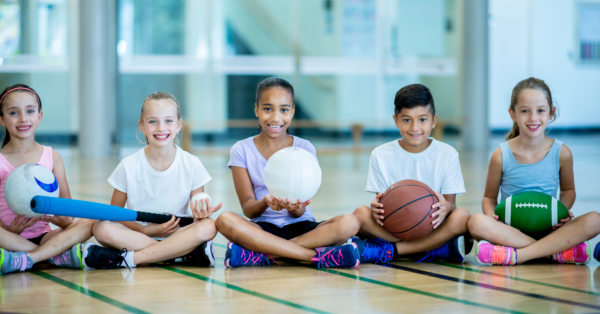Can physical activity improve your child’s academic performance?
Many people underestimate the importance of the physical activity to a child’s well-being. Research shows that students who get regular physical activity do better academically. The benefits of exercise often include better attention span, memory retention, standardized academic test scores, problem-solving skills, increased reaction time, creative thinking, and more. And this applies to college students as well.
If you thought your child’s academic performance depended solely on the number of hours spent in school, you are mistaken. Doing well in school and getting good grades is the result of many factors, from a child’s intelligence to the environment in which he finds himself. And one of the major, mostly ignored, influencing factors is physical health.
Physical activity and health can actually improve a person’s ability to learn. According to the authors of Writemyessay company, physical activity can significantly improve a child’s cognitive abilities, health, and academic performance.
Factors that affect a child’s academic performance
In addition to IQ levels, psychological, social, economic, personal, and environmental factors play an important role in education. The impact of these factors varies from person to person and even from country to country! Some such elements are:
- Academic and school attachment;
- Teacher support and teaching style;
- Similar Values;
- Mental health;
- Class Environment;
- Gender differences;
- Family Education;
- Parental involvement;
- Socioeconomic factors.
How does physical activity affect academic performance?
Research shows that children who get adequate exercise and are active daily have the following characteristics compared to less active children:
- Better attention span;
- Better memory retention;
- Improved cardiovascular function;
- Improved physical fitness;
- Better metabolic function;
- Improved bone health;
- Better problem-solving skills;
- Improved performance on standardized academic tests;
- Immediate and long-term improvement in student performance;
- Better reaction time and creative thinking;
- Increased positive mood.
Writing assignments are easier for such children. And those who are not good with words ask online companies to do my essay for cheap.
Effects of exercise on the brain
According to a study, regular aerobic exercise improves the functioning of the hippocampus, an area of the brain involved in learning and verbal memory. Other forms of exercise, such as balance exercises, muscle toning, and resistance training, did not produce the same results for the brain. Even the prefrontal cortex and medial temporal cortex – the parts of the brain that control thinking and memory – were found to be in better health in those who exercised regularly than in the brains of those who did not exercise.
The effects of exercise on memory and thinking are both direct and indirect.
- Directly, regular exercise has the potential to reduce inflammation, reduce insulin resistance, and stimulate the release of growth factors. These growth factors are chemicals in the brain that affect the growth of new blood vessels, brain cell health, and the survival of new brain cells.
- Indirectly, sufficient exercise will improve sleep quality and mood. It will also reduce stress and anxiety.
How much exercise should students do?
Children ages 6 to 17 should do a minimum of 60 minutes of aerobic exercise each day, and adults ages 18 to 64 should do a minimum of 30 minutes of physical activity each day.
The benefits of exercise during the school day are believed to outweigh the benefits associated with more time in the classroom. In addition, the greatest cognitive benefits of physical education were observed when physical education was provided in the morning or afternoon rather than at the end of the day.
To get children moving, schools should encourage steps such as recess, physical education classes, after-school sports, biking/walking to school. Physical activity should not be seen as an optional option but as a major educational issue.
Do college students benefit from exercise?
The benefits of exercise in terms of academic achievement also extend to college students. Physical education is not part of most universities, but a growing number of colleges around the world are introducing it into the curriculum to make young people more active.
According to a study by essaysadvisor.com experts, just one hour of exercise each week can make a big difference. This research included a study of the habits of 21,000 college students. They found that an hour of exercise per week increased their overall GPA by 0.06 points. Students who did not exercise at all and then started exercising 3 hours a week had a 0.18 increase in their GPA
Regular exercise is a vital part of maintaining a healthy body. A healthy body, in turn, will keep your mental capacity high, and your highest potential for academic excellence can be realized.



